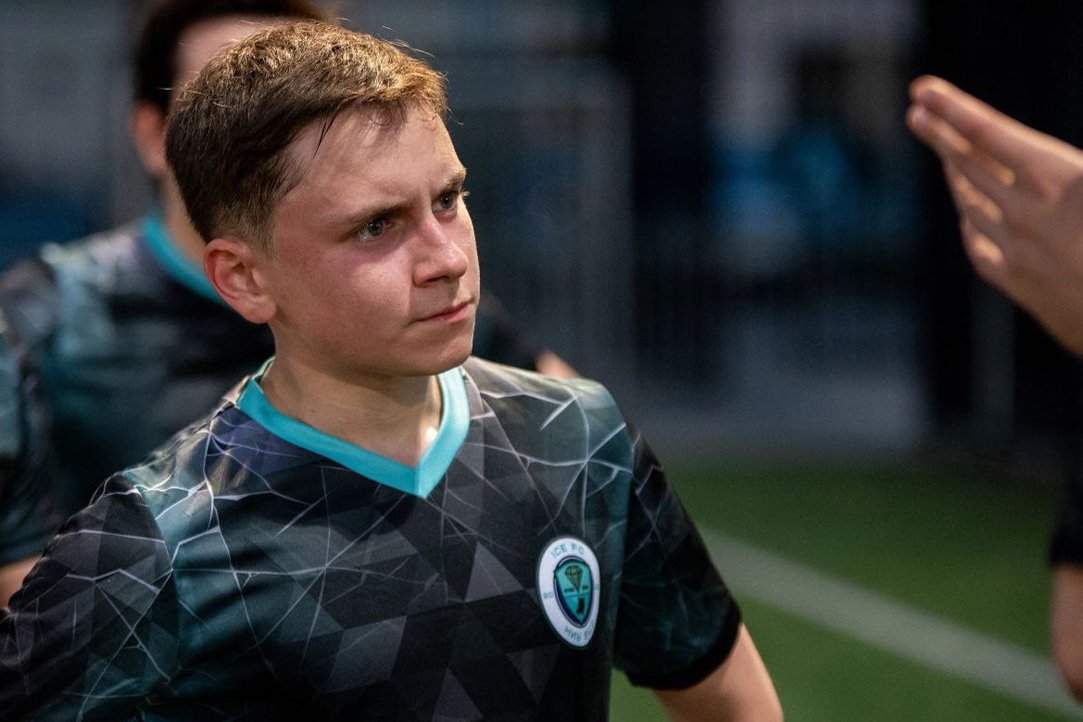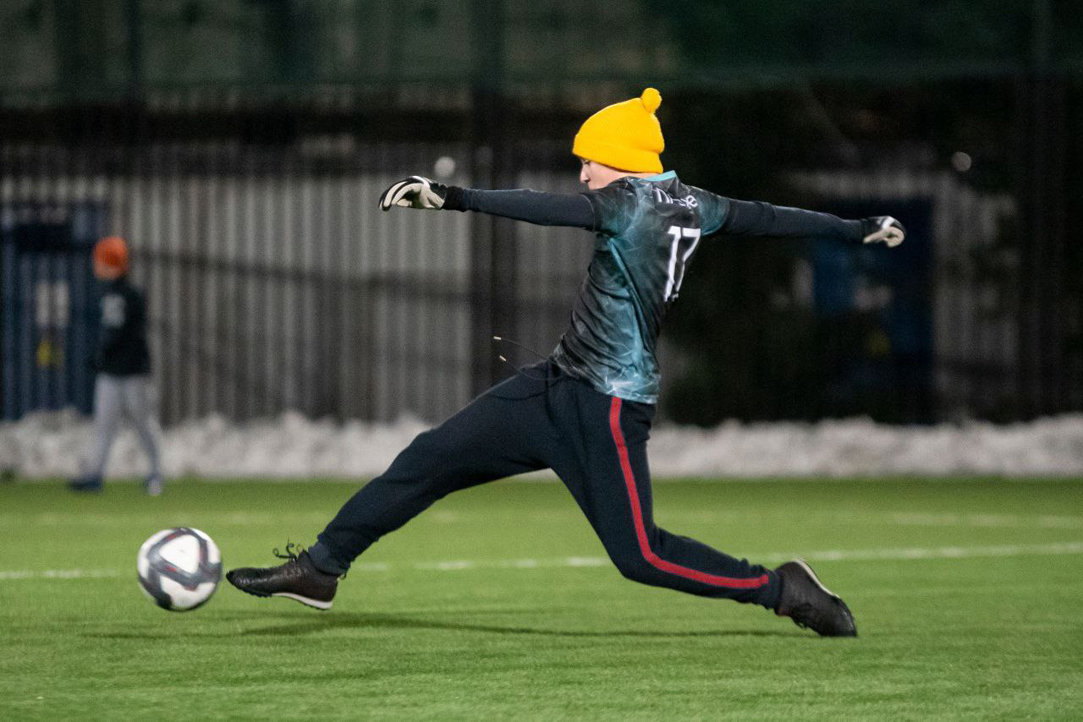“It's Better to Regret Trying and Failing Than to Regret Not Trying At All”

Platon, before we talk about your team, may I know your story of getting into football?
It started with my grandfather, who passed on me his love for football. My first interaction with this sport was when I was four or five. Grandpa was watching something on TV, I had nothing to play with so I got on his couch and began to watch, too. He said it was a football match. Arsenal was losing 2-0, until in the last minute they scored an equalizer. I thought, “Wow! How is this possible?” That was my first game-time emotion and it was intense. It made me want to become a professional footballer.
But, when I turned seven, my mother decided I would make a brilliant ballroom dancer. I kept dancing until I became a candidate for master. Won the Moscow Region Ballroom Competition, but had to say good-bye to my dance career after my first six months at the university. Juggling study and professional sport turned out challenging.
But I never lost interest in football. I would play at school and in the backyard with my friends.
Did you enjoy ballroom dancing? You danced professionally for quite a number of years.
I didn’t dance professionally until my last three years. At some point I realized how little I had achieved as a dancer. It was a shame not to win accolades and have my dance partner leave in the end. What I did I found a new one. I joined another club and got new coaches. It wasn’t until I began to practice real hard that I realized what sport was all about.
Corny as it may sound, sport is basically about overcoming yourself. By getting you to do things you never tried before, sport makes you work towards your better self. Sometimes through pain and hurt.
But here at ICEF you finally made your childhood dream come true. How did you come up the idea to start a football team?
It was my first year of study. I was full of energy and enthusiasm, feeling like I was able to achieve whatever I wanted. Adding to that belief was my success in dance: I finally achieved what I’d been working so hard on. After all, it's better to regret trying and failing than to regret not trying at all, right?
I learned HSE operated some football league organizations that ran championships. There were many of us here at ICEF who wanted to join, but none of us had a team. Training together would be a fun and exciting pastime. I put out a call and people responded. As many as twenty guys did. I couldn’t expect that many, to be honest. A big thank you to everyone who responded and helped to organize this team.
We joined our first championship last year. Under a different name. There was a series of test matches to play to get into the league, and our first one was with an adult team. They were fathers already, playing against us freshmen. We worried a lot, of course.
It was mostly defensive play on our side, with just a couple of moments to play on the break. One of them did work for us because the ball just slipped along an unpredictable trajectory in that rainy January weather and there was no chance for the keeper to stop it. That was a terrible winning goal, of course, but we were so happy we scored it. Every one of us was giving his best in that game. The rest of our test matches went much easier and we ended up accepted to the league.
As for the championship, we didn’t succeed in it. Even though defensive play style can be an effective tactics, as was proved by many great coaches, you can’t go on it all the time. You can’t score by simply fighting back, you’ve got to have a plan. Changing our tactical style during that game wasn’t good for our performance.

How did your preparation for the current football season go?
In the summer after that championship, we decided to re-structure and invited a coach. I had been both captain and coach all previous year not because I have the coaching skills, but because a football team, like any organization, needs a key decision-maker. My role was more of an on-pitch leader.
And we also changed our name. We wanted one that would reflect the name of ICEF. We played with letters and devised ICE FC. I think it sounds nice. I like it.
We got one win in the autumn cup. You can read about it in an interview with my teammate. I can’t say we now stick entirely to the attacking style. We still rely a lot on posing obstacles and tailoring our tactics based on the opponents’ moves. That's the idea. When everyone sticks to it, they know how to play. But we are now much better scorers than before. We score in almost every game, and that’s saying something.
We will soon be playing in pre-season friendlies, scheduled to take place from February to April, and will then apply to the HSE Youth League. By the way, we are recruiting new players. If you want to join, don’t hesitate to text us.
How do you balance your study and football? Can you handle both efficiently?
Absolutely. I see sports as an essential way to relief stress. To survive at ICEF, you absolutely need some distraction. It’s rigorous learning. Let me give you an example: After your teacher has delivered the basics of a topic, you need to dig deeper on it on your own, which involves doing some time-consuming reading – in English – and much more. And there are other courses, lectures, seminars and office hours to attend. There is a lot to do before you can say, “I know this topic well.” Sooner or later you start feeling trapped studying. You have this sad feeling that meanwhile life is just passing you by. That’s why you need to do something else to avoid feeling stuck.
How did you choose ICEF and your field of study?
As a school student I was passionate about learning history. I enjoyed figuring out peoples’ motives in decision-making. Hence my interest in economics and politics. I chose economics, and my logic was this: A good economist can make a good politician, but not the other way around.
When choosing where to study, I was looking to make the most of my education. HSE is this country’s best economics university, and ICEF is its best school. Here, I can become a true professional, practice English, study a double degree and enjoy greater prospects after graduation.
What also makes ICEF a great place is its community of intelligent people who care about their future. They are willing to educate themselves, invest in themselves, try on new roles and travel. They aren’t airheads, they offer some enriching experience. They are very interesting to communicate with.
What is your favourite course?
Mathematics. It never was my number one at school, but I really like it now. I can’t say I fully understand why problems have the results they have, but I know how to solve and where to apply solutions so that they provide desired outcomes. It’s nice. Just like in sports: get your leg straight and there it is.
Do you already know where you want to be professionally?
I’m still thinking. The best thing about economics and finance education is that it opens doors to many other fields. Once you get the understanding of how economies work, it won’t be difficult to figure out the rest. Here at ICEF it is possible to get a feel of many industries while a student. I won’t be able to change to a career in medicine, of course, but I will be able to manage hospital economy.
At this point in time, I just enjoy being helpful. Last summer I was selected for an internship at VK – thanks to my event organizer experience from ICEF. I’m still working for VK, although in a different role, and have recently been given a challenging project to manage. Let’s see what comes out of it.
What I do know is that I really enjoy my programme of study. I’ll be studying for another two and a half years with great pleasure. That’s quite a long-term plan.